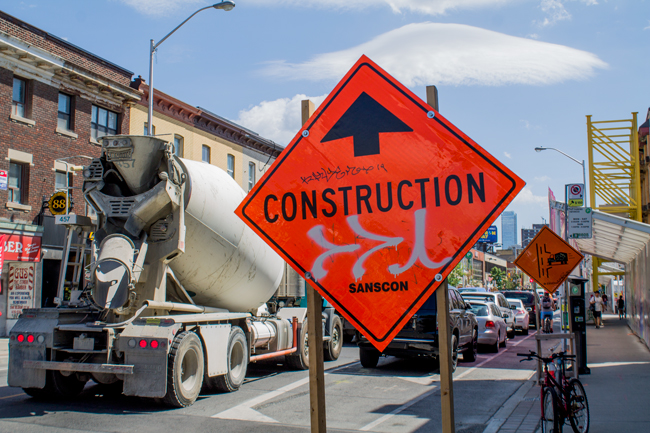Infra
Infrastructure associations calling for modern procedures in Toronto – On-Site Magazine

A trio of Toronto area construction associations are calling on the City of Toronto to improve procurement practices to accelerate timelines for infrastructure projects, mitigate traffic congestion and reduce overall costs. The Toronto and Area Road Builders Association (TARBA), the Greater Toronto Sewer and Watermain Contractors Association (GTSWCA) and the Heavy Construction Association of Toronto (HCAT), whose members collectively are responsible for 75 per cent of the City of Toronto’s total construction capital spend, are asking for changes that embrace innovation, provide better communication and incentivize faster project completions.
PHOTO: David Kennedy
The organizations have jointly proposed such measures as early tendering and faster awarding of projects, incentives for early project completions rather than only including penalties for delays in contracts, giving project managers more authority during design conflicts, and improving communication with the public to help avoid conflict with the general public.
“The competing priorities of accelerating construction timelines and maintaining acceptable noise levels for city residents make it clear that 24/7 construction has limitations in densely populated areas,” said Peter Smith, executive director at HCAT. “This approach can only be effectively implemented under specific circumstances and must be included in project planning documents at the time of tender so it can be priced accordingly.”
The three associations would also like to see proactive collaboration between city officials and contractors on risk-sharing with the use of modern procurement models, which they say can help unlock efficiencies.
Furthermore, by tendering and awarding projects, like road maintenance and sewer expansion, earlier in late fall or early winter for the following year, the groups say the city can maximize its construction season while receiving more competitive pricing.
“While lane closures during construction may be seen as a nuisance for commuters and local businesses, they are crucial safety features in construction work zones that protect both workers and the public and allow space for essential equipment and waste disposal,” said Raly Chakarova, executive director at TARBA. “Increasing fees for this necessary safety buffer between active traffic and construction zones will not alleviate congestion, but it will increase building costs for taxpayers.”
The three organizations say that the options presented will help accelerate construction timelines while alleviating traffic congestion and reduce taxpayer costs.
“We are still using infrastructure that was put in place by our grandparents, and we are now seeing the impacts of underinvestment from past decades with this summer’s flooding and ongoing lack of affordable housing,” said Patrick McManus, executive director of GTSWCA. “With Toronto’s continued growth and changing climate, delaying investments and halting construction is not an option, and less bureaucratic delays will only help get projects built faster and reduce continued traffic congestion.”










